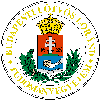Melinda Toth
Researcher at ELTE and RefactorErl project leader
Eötvös Loránd University

Melinda Tóth is a third year PhD student at the Eötvös Loránd University (Budapest, Hungary). She has been working with Erlang since 2007 with the RefactorErl project. Melinda received her master's degree in Computer Science in 2009 from Eötvös Loránd University. Both her bachelor and master theses were based on Erlang and function related refactorings. In 2008 she spent five months at University of Kent where she worked with Wrangler. Melinda teaches Distributed Programming and Functional Languages (mostly Erlang) at the University. Her PhD research field is about data flow graphs, message passing analysis for functional languages, and impact analysis of refactorings. She is the leader of the RefactorErl project.

Melinda Toth is Giving the Following Talks
Tutorial: Utilization of ReafactorErl during Development and Maintenance
RefactorErl is a source code analyser and transformer tool. Beside the more than 20 refactoring transformations the tool has a complex static source analyser framework: it provides data flow analysis, dynamic function call detection, side-effect analysis, a user level query language to query semantic information or structural complexity metrics about Erlang programs, dependency examination among functions or modules, function call graph with information about dynamic calls, etc.
During the tutorial we plan to highlight some useful features of the tool, and to present how this tool can be used in software development and maintenance tasks.
We will also present how the tool can be used for code comprehension in development teams, how to configure the RefactorErl server for multi users, etc.
Talk objectives: Show the main code comprehension features of RefactorErl and give some useful case studies about the usage.
Target audience: Everyone who has ever written Erlang code, wanted to maintain/understand/debug legacy code.

